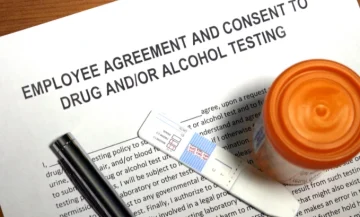In today’s fast-paced world, word games like Connections are a fun way to challenge your brain and keep your mind sharp. As we gear up for May 20, 2025, players are looking for the best strategies and tips to find the right answers. Whether you’re a seasoned player or just starting out, this guide will help you tackle today’s Connections puzzle with confidence. Let’s explore how to improve your skills and connect the dots more effectively!
Key Takeaways
- Understand the themes in the game to spot connections quickly.
- Use word associations to help link clues together.
- Manage your time wisely to avoid rushing through answers.
- Work with others to brainstorm and share ideas.
- Practice regularly with past puzzles to sharpen your skills.
Understanding Today’s Connections Puzzle

Overview of Connections Game
The New York Times Connections game has really taken off, capturing the attention of puzzle enthusiasts everywhere. The core concept revolves around identifying common threads between seemingly disparate words. It’s a daily word association challenge where you must group sixteen words into four categories, with each category containing four words that share a connection. The game resets daily, presenting a fresh set of words to analyze and connect. It’s a fun way to start the day, or a good way to take a break from work.
Importance of Finding the Right Answer
Finding the right answer in Connections isn’t just about bragging rights; it’s about exercising your brain and improving your cognitive skills. Successfully completing the puzzle requires a blend of vocabulary, logical reasoning, and pattern recognition. Plus, there’s a real sense of accomplishment when you nail a particularly tricky set of connections. It’s also a great way to build relationships with friends and family, as you can work together to solve the puzzle.
How Connections Challenges Your Mind
Connections is more than just a word game; it’s a mental workout. It challenges your mind in several ways:
- Vocabulary Expansion: You’re exposed to a wide range of words, some of which you may not be familiar with.
- Critical Thinking: You need to analyze the relationships between words and identify the underlying themes.
- Pattern Recognition: Spotting the connections requires you to recognize patterns and make logical deductions.
Connections forces you to think outside the box and approach problems from different angles. It’s a great way to keep your mind sharp and improve your problem-solving abilities. It’s also a fun way to learn new words and expand your knowledge.
It’s like a daily dose of mental gymnastics, keeping your mind agile and engaged. And with the Connections Bot, you can even track your progress and see how you stack up against other players.
Hints for Solving Connections Today

Identifying Common Themes
Okay, so you’re staring at the Connections grid for May 20, 2025, and it looks like a jumbled mess? Don’t panic! The first thing I do is look for words that seem to have something in common. It could be anything: synonyms, things you find in a certain place, or even just words that sound similar. The trick is to not overthink it at this stage. Just jot down any potential connections that pop into your head. For example, if you see “red,” “blue,” and “green,” you might think of colors. Obvious, right? But sometimes the obvious is exactly what you need to get started.
More Content: connections nyt
Using Word Associations
Word association is your friend. Think about what each word makes you think of. Does “king” make you think of “queen” or “castle”? Write those associations down. Sometimes, a less obvious association will be the key to unlocking a category. Let’s say you see the word “bank.” Do you think of money? Or the side of a river? Or maybe even an airplane banking in the sky? Considering all the angles can really help. This is especially useful for those tricky purple categories that seem to come out of nowhere. Remember to consider advanced connectivity technologies to help you brainstorm.
Breaking Down Clue Categories
One strategy I find super helpful is to try and guess what types of categories might be in the puzzle. Are we looking for book titles? Types of food? Things you’d find in a garage? Thinking about potential categories beforehand can help you narrow down the possibilities and make connections you might have missed otherwise. It’s like priming your brain to look for specific patterns. Also, don’t be afraid to revisit words you initially dismissed. Sometimes, a word will fit into multiple categories, and you need to see the other words in the grid before its true meaning becomes clear.
It’s easy to get tunnel vision when you’re focused on one particular word or connection. If you’re stuck, take a step back and look at the entire grid with fresh eyes. Sometimes, a break is all you need to spot a connection you were missing before.
Strategies for Success in Connections
Time Management Techniques
Okay, so you’re staring at the Connections grid, and the clock’s ticking. Don’t panic! First, give yourself a reasonable time limit. Maybe 15-20 minutes? If you’re still stuck after that, it’s time to bring in reinforcements (hints, that is!).
- Prioritize: Look for the obvious connections first. Those easy wins can give you momentum.
- Don’t get bogged down: If you’re spending too long on one set, move on and come back to it later. Fresh eyes can make a difference.
- Use the shuffle: The shuffle button is your friend. Sometimes, just seeing the words in a different order can spark a connection.
Time management is key. Don’t rush, but don’t get stuck either. A balanced approach will help you stay focused and avoid silly mistakes.
Collaborative Problem Solving
Two heads are often better than one, right? Connections is a great game to play with friends or family. Bouncing ideas off each other can help you see connections you might have missed on your own. Plus, it’s just more fun!
- Discuss potential categories: Talk through possible themes or relationships between the words.
- Listen to different perspectives: Everyone sees things differently. Someone else might spot a connection you overlooked.
- Don’t be afraid to be wrong: It’s okay to make incorrect guesses as a team. It’s all part of the learning process.
Practicing with Previous Puzzles
Want to get better at Connections? The best way is to practice! Luckily, there’s a whole archive of past puzzles available. Working through these will help you develop your pattern-recognition skills and get a feel for the types of categories the game uses. You can even follow their progress to see how you improve over time.
- Analyze the solutions: Don’t just play the puzzles; study the answers. What were the common themes? What types of wordplay were used?
- Keep a record of your mistakes: What kinds of connections did you miss? What were you overthinking?
- Track your progress: Note how long it takes you to solve each puzzle and how many mistakes you make. This will help you see how you’re improving.
Consistent practice is the key to mastering Connections.
Common Mistakes to Avoid
Rushing Through Answers
It’s easy to get caught up in the excitement and try to solve the Connections puzzle as quickly as possible. However, rushing can lead to careless errors. Take your time to carefully consider all the words and their potential relationships. A quick glance might make you miss a subtle connection that becomes obvious with a bit more thought. I know, I know, easier said than done, especially when you’re trying to beat your friends’ scores. But trust me, a little patience goes a long way.
Ignoring Clue Context
Each word in the Connections puzzle is presented without additional context, but it’s important to consider how a word might be used in different ways. Sometimes, a word can have multiple meanings, and only one of those meanings fits the theme of a particular category. Pay attention to the other words in the puzzle and how they might influence the interpretation of a given clue. For example, “bank” could refer to a financial institution or the side of a river. Considering the other words will help you determine the correct meaning. It’s like trying to understand a joke without the setup – it just doesn’t work.
Overthinking Connections
While it’s important to think critically about the Connections puzzle, it’s also possible to overthink it. Sometimes, the connections are more straightforward than they appear. Don’t get bogged down in complex or obscure relationships when a simpler explanation is available. This is something I struggle with all the time. I start thinking about all these crazy, convoluted connections, and then the answer is something super obvious. Here are some things to keep in mind:
- Look for the most obvious connections first.
- Don’t try to force a connection that doesn’t quite fit.
- Consider common phrases or associations.
It’s a balancing act. You need to think critically, but you also need to avoid getting lost in the weeds. If you’re spending too much time on a particular puzzle, take a break and come back to it later with a fresh perspective. Sometimes, a little distance is all you need to see the solution.
Also, don’t forget to check out some puzzle solving apps to help you improve your skills.
Resources for Enhancing Your Skills
Online Forums and Communities
Want to get better at Connections? One of the best ways is to join online communities. Seriously. There are tons of forums and groups dedicated to word games and puzzles. You can find people sharing tips, discussing strategies, and even working together to solve the daily Connections puzzle. It’s a great way to learn new approaches and see how other people think. Plus, it’s just fun to chat with fellow puzzle enthusiasts. Look for groups on platforms like Reddit, Discord, or dedicated puzzle websites. You might even find some friendly competition to keep you motivated. Don’t be shy – jump in and start participating!
Puzzle Solving Apps
There are a bunch of apps out there designed to help you sharpen your puzzle-solving skills. Some apps focus specifically on word games, while others offer a variety of brain-teasing challenges. These apps can be super helpful for improving your vocabulary, pattern recognition, and logical thinking – all of which are essential for Connections. Many apps also track your progress and provide personalized feedback, so you can see where you’re improving and where you need to focus more attention. Check out the app stores on your phone or tablet and search for “word puzzle games” or “brain training apps.” You’re sure to find something that suits your style and helps you get better at Connections. Consider trying a brain training app to improve focus.
Books and Guides on Word Games
Don’t underestimate the power of a good old-fashioned book! There are tons of books and guides available that delve into the world of word games and puzzles. These resources can provide in-depth explanations of different puzzle types, strategies for solving them, and even the history behind some popular games. Reading about word games can help you develop a more systematic approach to problem-solving and expand your knowledge of language and wordplay. Plus, books are a great way to unplug and relax while still engaging your brain. Look for books on topics like:
- Crossword puzzles
- Anagrams
- Logic puzzles
- General word game strategies
Reading about word games can give you a solid foundation in puzzle-solving techniques. It’s like having a coach in book form, ready to help you level up your Connections game.
Analyzing Previous Connections Answers
Learning from Past Puzzles
Looking back at old Connections puzzles can really help you get better. It’s like studying for a test by reviewing old exams. You start to see how the game designers think and what kind of wordplay they like to use. For example, some puzzles might focus on synonyms, while others might play with homophones or cultural references. By checking out past puzzles, you build up a mental library of these tricks and become quicker at spotting them.
Identifying Patterns in Answers
One of the best things you can do is look for patterns. Does the game often use a specific type of category, like “Things Found in a Kitchen” or “Words That Can Follow ‘Hot’?” Recognizing these recurring themes can give you a head start. Also, pay attention to how words are connected. Are they direct synonyms, or is there a more subtle relationship? Sometimes, the connection is based on a shared idiom or a common phrase. Spotting these patterns can seriously boost your solving skills. You can even track these patterns yourself:
- Frequency of category types (e.g., food, places, actions).
- Common wordplay techniques (e.g., homophones, synonyms, idioms).
- Difficulty level based on player feedback.
Using Historical Data for Future Games
Think of past Connections puzzles as data points. The more you analyze, the better you can predict what might come up in future games. For instance, if you notice that a lot of puzzles use words with double meanings, you’ll be more alert to that possibility. You can also use historical data to gauge the difficulty level of different types of connections. Some categories are just naturally harder to spot than others. By keeping track of this, you can adjust your strategy and focus your energy where it’s needed most. You can even use online resources to see what words have appeared frequently. This can help you identify common themes and associations that the game designers might revisit.
Analyzing past puzzles isn’t just about memorizing answers; it’s about understanding the underlying logic and wordplay. This deeper understanding will make you a more confident and successful Connections player in the long run.
Engaging with the Connections Community
Sharing Tips and Tricks
The Connections game, like the NYT word games, has quickly become a daily ritual for many. Sharing tips and tricks is a great way to improve your game and help others. Some people share their strategies for identifying categories, while others focus on specific word patterns they’ve noticed. Sharing your insights can lead to new ways of thinking about the game.
Participating in Online Challenges
Online challenges add a competitive edge to your Connections experience. Many forums and social media groups host daily or weekly challenges where players can test their skills against others. These challenges often involve solving the puzzle within a certain time limit or with a limited number of mistakes. Participating in these challenges can:
- Sharpen your problem-solving skills.
- Introduce you to new strategies.
- Provide a fun and engaging way to connect with other players.
Connecting with Fellow Players
Connecting with fellow Connections players can greatly enhance your enjoyment of the game. Whether it’s discussing strategies, sharing your daily results, or simply commiserating over a particularly difficult puzzle, engaging with others adds a social dimension to the experience. You can find communities on various platforms, such as:
- Online forums dedicated to word games.
- Social media groups focused on Connections.
- Gaming communities that include Connections discussions.
By connecting with fellow players, you can learn new approaches, gain different perspectives, and build friendships around a shared interest. It’s a great way to stay motivated and continue improving your Connections skills.
Wrapping Up Your Connections Journey
In conclusion, tackling the Connections puzzle can be a fun and rewarding experience. Remember, it’s okay if you don’t get every answer right away. Each day brings a new challenge, and with practice, you’ll improve your skills. Keep these tips in mind: take your time, look for patterns, and don’t hesitate to revisit clues if you’re stuck. Tomorrow is another chance to play, and we’ll be here with more hints to help you along the way. Happy puzzling!
Frequently Asked Questions
What is the Connections game about?
Connections is a word puzzle game where you need to find groups of words that share a common theme.
How can I improve my skills in Connections?
You can practice with previous puzzles, join online communities, and use puzzle-solving apps to enhance your skills.
What are some common strategies for solving Connections puzzles?
Identify themes, use word associations, and break down clues into categories to help you solve the puzzles.
What mistakes should I avoid while playing Connections?
Avoid rushing your answers, overlooking the context of clues, and overthinking the connections.
Are there resources available for learning more about Connections?
Yes! There are online forums, books, and apps dedicated to word games that can help you learn more.
How can I connect with other Connections players?
You can share tips on social media, participate in online challenges, and join forums to connect with fellow players.
Read More:
most influential companies in the world
What is one of the best ways to get reliable information about a product?

Peyman Khosravani is a seasoned expert in blockchain, digital transformation, and emerging technologies, with a strong focus on innovation in finance, business, and marketing. With a robust background in blockchain and decentralized finance (DeFi), Peyman has successfully guided global organizations in refining digital strategies and optimizing data-driven decision-making. His work emphasizes leveraging technology for societal impact, focusing on fairness, justice, and transparency. A passionate advocate for the transformative power of digital tools, Peyman’s expertise spans across helping startups and established businesses navigate digital landscapes, drive growth, and stay ahead of industry trends. His insights into analytics and communication empower companies to effectively connect with customers and harness data to fuel their success in an ever-evolving digital world.











